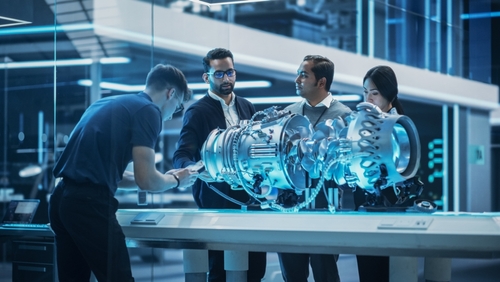
Penn State University will receive $4.5 million from the U.S. Department of Energy’s (DOE) to fund research into turbine performance and efficiency, officials announced Monday.
The funding from the DOE’s Office of Fossil Energy and Carbon Management (FECM) and National Energy Technology Laboratory will go to Penn State’s Steady Thermal Aero Research Turbine (START) lab and its National Experimental Turbine testing platform. Money will be used to add two new compressor systems that will provide higher flow and pressure capabilities.
The START Lab is a world-class test facility capable of simulating realistic gas turbine operating conditions, which speeds up the process of researching advanced turbine technology. The project team at START said it hopes to increase turbine efficiency through advanced material usage like ceramic matrix composites that allow turbines to operate at higher temperatures. The team said it will also assess combustor efficiency by testing a range of fuels from natural gas to hydrogen to hydrogen blends.
DOE officials said the research supports the Biden Administration’s goal of using low-carbon fuels – including sustainable aviation fuels and hydrogen for power production – to meet the administration’s goals of reducing the power generation and aviation sectors’ carbon footprints.
The project will leverage existing efforts from other agencies, like the Federal Aviation Administration and the National Aeronautics and Space Administration, as well as from multiple heavy industry partners, like Honeywell, Siemens, Solar Turbines, and Pratt & Whitney. By collaborating, the government and its partners have proven to be successful in advancing gas turbine technologies and improving the gas turbine industry.